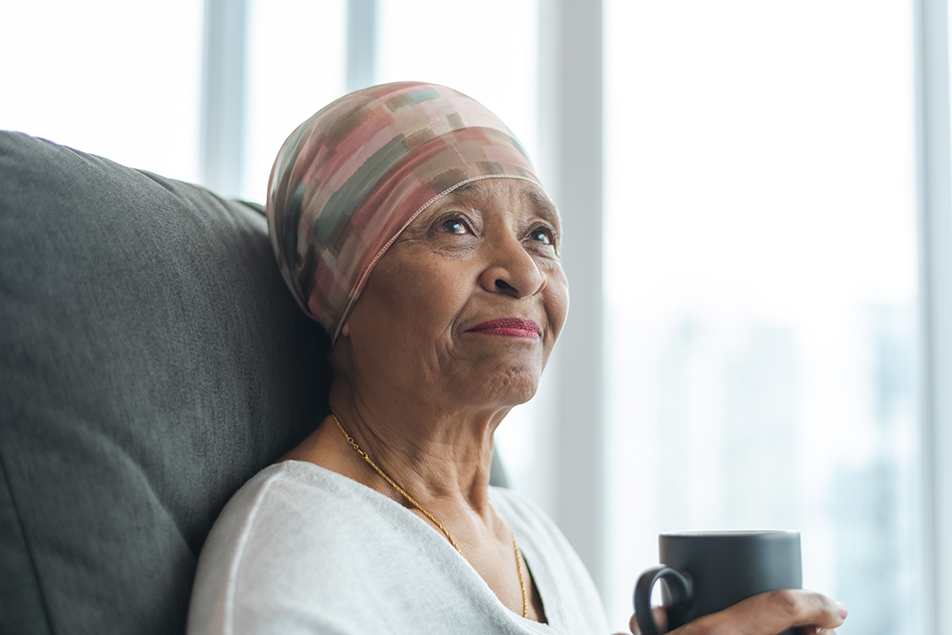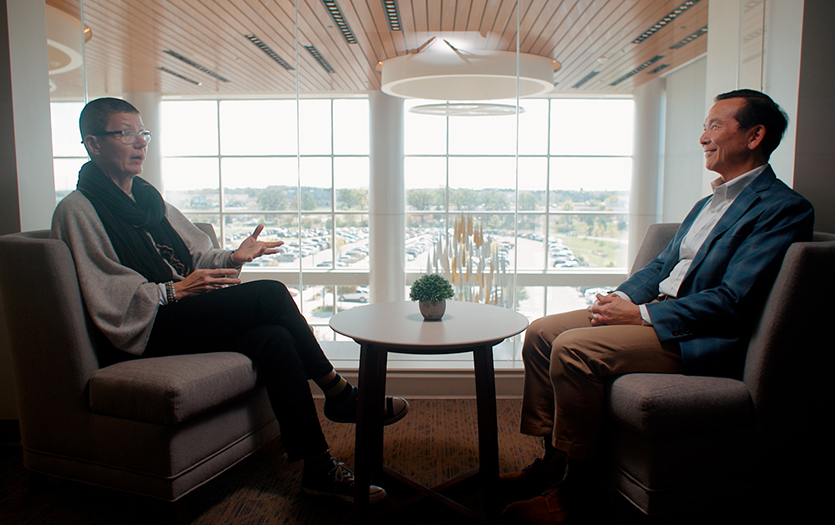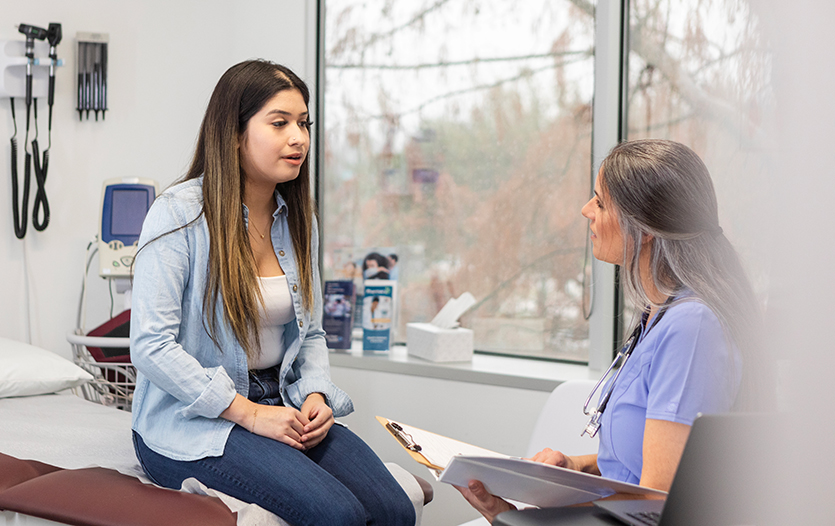
As the COVID-19 vaccination becomes available to more of the population, questions regarding the safety, efficacy and who makes a good candidate continue to come up. We invited Jeffrey Letzer, DO, PPG – Oncology, to address some of these concerns for those with a current or past cancer diagnosis, as well as caregivers.
Is it safe for cancer patients to get the COVID-19 vaccine?
It is overwhelmingly believed that the benefits far outweigh any risks. In the Centers for Disease Control and Prevention (CDC) guidelines, cancer patients are not excluded and indeed are highly encouraged to consider the vaccine, with some rare exceptions. Although cancer patients were not included in the studies to date, it is not anticipated that they will have greater side effects.
What factors should cancer patients and survivors consider before getting the COVID-19 vaccine?
Among cancer patients, there are only rare circumstances that would require further discussion and consideration before getting the vaccine. For example, if a patient is scheduled for a stem cell transplant or has recently had a stem cell transplant, they will need to speak with their Transplant team for direction on how long they should wait to safely receive the vaccine.
If they are currently receiving chemotherapy or immunotherapy, the patient will want to speak with their oncologist to decide where in their treatment cycle they should receive the vaccine.
The bottom line is that, other than a few rare exceptions, all adult cancer patients, whether they have active cancer or a past history of cancer, should consider getting the vaccine because the benefits far outweigh the risks.
Aside from a recent or upcoming stem cell transplant, what are some of the other rare exceptions?
Whether or not one has or had cancer, anyone who has a known allergy to one of the components of the vaccine (polyethylene glycol or polysorbate) or had a severe allergic reaction to the first dose of the COVID-19 vaccine should not get further Covid vaccines. For more on the CDC’s recommendations based on allergies and allergic reactions, visit their website.
Are there any specific stages in the cancer journey when one should avoid the vaccine?
None. Whether the patient is in active treatment or they are a cancer survivor, no stage precludes it. If a patient has reservations, they can always consult with their doctor.
Is one vaccine preferred over another?
I recommend the first one available to them. Currently, there are only two options, and likely more to come. Unfortunately, the pandemic is as bad as it’s ever been, so the sooner a patient can receive protection, the better off they will be.
Both vaccines have the same exact technology and, while there are no head-to-head comparisons published, the safety and efficacy appear to be equal.
Is a patient at a greater risk of side effects or lesser efficacy if they have a compromised immune system?
The answers here are really unknown. However it is unlikely that side effects will be any worse. In terms of efficacy, any effectiveness is better than no vaccine; it is hopeful that there will be substantial effectiveness.
If a cancer caregiver gets the COVID-19 vaccine, do they need to be as cautious when caring for their loved one with cancer?
Yes. Even though these vaccines are 95% effective, we have no idea what percentage of protection the vaccine offers against people being infectious. Despite getting the vaccine, an individual can still get the SARS-COV2 infection, but be asymptomatic (showing no symptoms). As the caregiver, they could feel fine but still transfer the virus to their loved one. Because of this, caregivers should not change the precautions in place. They should continue to practice physical distancing, mask wearing and proper hand washing, even after receiving the vaccine.
What impact is the pandemic having on cancer diagnoses and treatment?
During the pandemic, we’re seeing a trend of people neglecting their health out of fear of exposure. Individuals are putting off screenings like mammograms, colonoscopies, etc. This is leading to a widespread delay in the diagnosis of many cancers. We believe that, once enough of the vaccine has been distributed and we start achieving herd immunity, people will start coming back for routine screenings or address problems they have ignored, which will lead to increased diagnoses of cancers.
However, with the safety measures our hospitals and clinics have in place, there’s no need to put off cancer screening or dealing with symptoms when you notice them. The earlier we can detect cancer, the better the outcome. Despite the height of the pandemic, each person should talk to their primary care provider and address concerns sooner than later!
What would you say to a patient concerned about the vaccine’s safety?
There’s a lot of misinformation out there. People talk to their friends or family, or they see something online, and they take it as fact. Some are fearful because of how fast the vaccine was rolled out, or how they think the data were evaluated. Some are concerned that the American vaccines were approved too quickly by the FDA. I can tell you from listening to numerous lectures from world experts, including vaccinologists who’ve spent their entire careers studying the subject, that there’s no doubt that these vaccines were reviewed thoroughly and scientifically. Historically, with every vaccine, if there were adverse reactions, they occurred within the first two months after the vaccine was administered. There’s no question in my mind, these vaccines are extremely safe. With over 3,000 Americans dying every day, there is no question that getting the vaccine is crucial for every adult, unless they are unable to receive it due to one of the aforementioned, rare exclusions.
What is the biggest takeaway for cancer patients and their caregivers?
Although we cannot be adamant about vaccine statistics for cancer patients, experts indicate that the benefits are anticipated greatly to outweigh the risks. At this time, the CDC has approved the vaccine for all adults, whether or not they have or have had cancer.
If you look at the science behind them, these vaccines were a “grand slam.” They came out in less than a year, which is a near-miraculous scientific development. We should all be grateful and take advantage of the opportunity.
If you are actively receiving treatment, speak with your oncologist ahead of receiving the vaccine. If you are a cancer survivor or caregiver and have questions, please get the vaccine!




